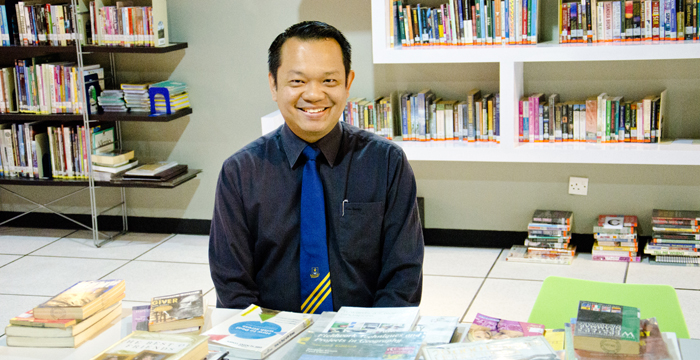Young Children’s Voices in Mathematical Problem Solving
Contributed by Dr Ho Siew Yin and Sng Wei Qin Abbie, from NTUC First Campus, for SingTeach Virtual […]
Read More
“Students who are weak in English will find Literature to be a struggle.” However, one Literature teacher from Hougang Secondary School believes hard work and passion for the subject will go a long way.
There are no standard answers in the Literature classroom, says veteran teacher Mr Ghazali Abdul Wahab. Many students fret about this. But to him, it is the main selling point of Literature.
“Your opinion matters, as long as you can provide your justification and evidence. And if you can express and write it clearly, you can’t be wrong,” he says.

Ghazali teaches Literature in both the Express and Normal Academic streams in Hougang Secondary School, and he is well aware that students see it as a “difficult” subject.
But anyone can study Literature, if they truly want to. “If students have the passion for Literature, they will do well in the subject,” Ghazali says. “I see passion as a bigger determinant of success.”
In some schools, lower secondary students need to do well in both English Language (EL) and Literature if they wish to take Literature as an O-Level subject. However, Ghazali makes an exception for those who are persistent. For him, it is definitely a matter of putting your heart into what you do.
“They will do whatever it takes to improve their English!” he says about those students who did not do well in EL but who chose to study Literature. “They read more, and they practise the language more because they want to do well in the subject they love.”
Knowing how important it is to keep his students interested in the subject, Ghazali is always thinking of ways to make Literature more enjoyable and relevant to them. “You need to make your subject more interesting.” he shares with us. “When students find Literature interesting, fun and engaging, they will want to do well for it.”
Imagine students and teachers enjoying the movie Pirates of the Caribbean in a cinema hall together. It is part of Ghazali’s effort to connect what students learn in Literature with pop culture.
For example, if he is teaching Lord of the Flies by William Golding, he will consider using popular movies on survival and self-preservation, such as The Hunger Games and Percy Jackson, in class and link them to the novel.
Injecting such elements of “fun” during lessons can help students learn better, even if sometimes they don’t realize it!
“I think that is the best kind of learning: when you actually learn but you don’t know you are learning,” Ghazali notes. “You feel like you are having fun but when you leave class, you learn something important.”
Other than that, selecting the “right” book also makes a big difference. Some literary masterpieces, no matter how essential they seem, may not be the best choice if students do not relate to them. (see box story “Selecting the ‘Right’ Text” below).
Literature is one of the best subjects because through it, you create a fictitious world for the students to engage in a non-threatening way.
– Ghazali on one of the benefits of Literature
To Ghazali, Literature is a special subject. It is about the narratives of our lives, and the values we hold. If teachers can harness the power of Literature fully, the amount of potential learning they can “squeeze out” from the subject is incredible.
“Literature is one of the best subjects because through it, you create a fictitious world for the students to engage in a non-threatening way,” Ghazali says. “Because of the richness of the contents and topics, any problems can be dealt with through Literature.“
For example, in Singapore schools of today, students study alongside classmates of all races and cultures. But do they know how to navigate within this cultural milieu?
By using the short stories in the anthology Telltale: 11 Stories, Ghazali puts his students in fictitious predicaments where they experience the lives of the characters: typical Singaporeans living in a fast-evolving society. “That is the role of teachers – to use rich text and link it back to students’ personal experience,” he notes.
Students analyse the stories and ask themselves: This character is fictitious, but could it have been me? What happened to this person? What mistake did this person make? What mistakes should I not make to avoid becoming this person?
“They will then write their thoughts in essay form to prepare for exams, but actually, they are preparing for life,” Ghazali says. “There is truly no right or wrong answer, as long as you can justify it.”
And therein lies the beauty of Literature: It can mean different things to different people, and yet, remain accessible to every one.